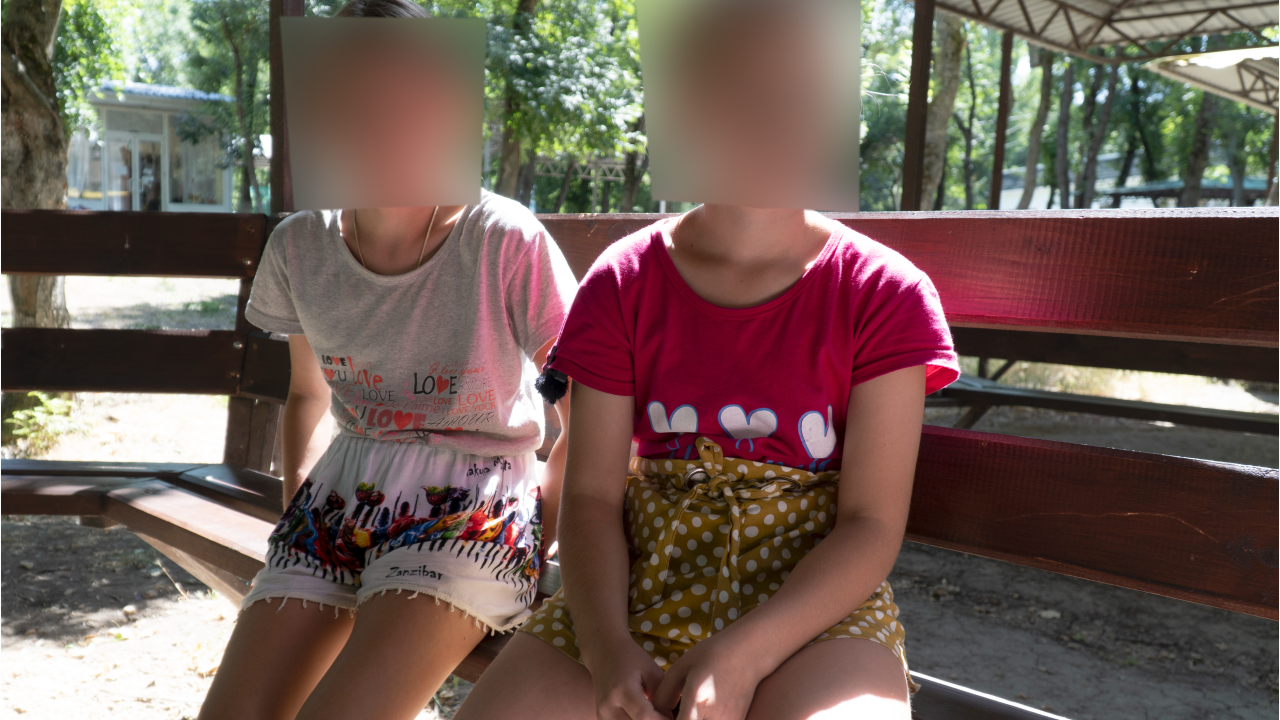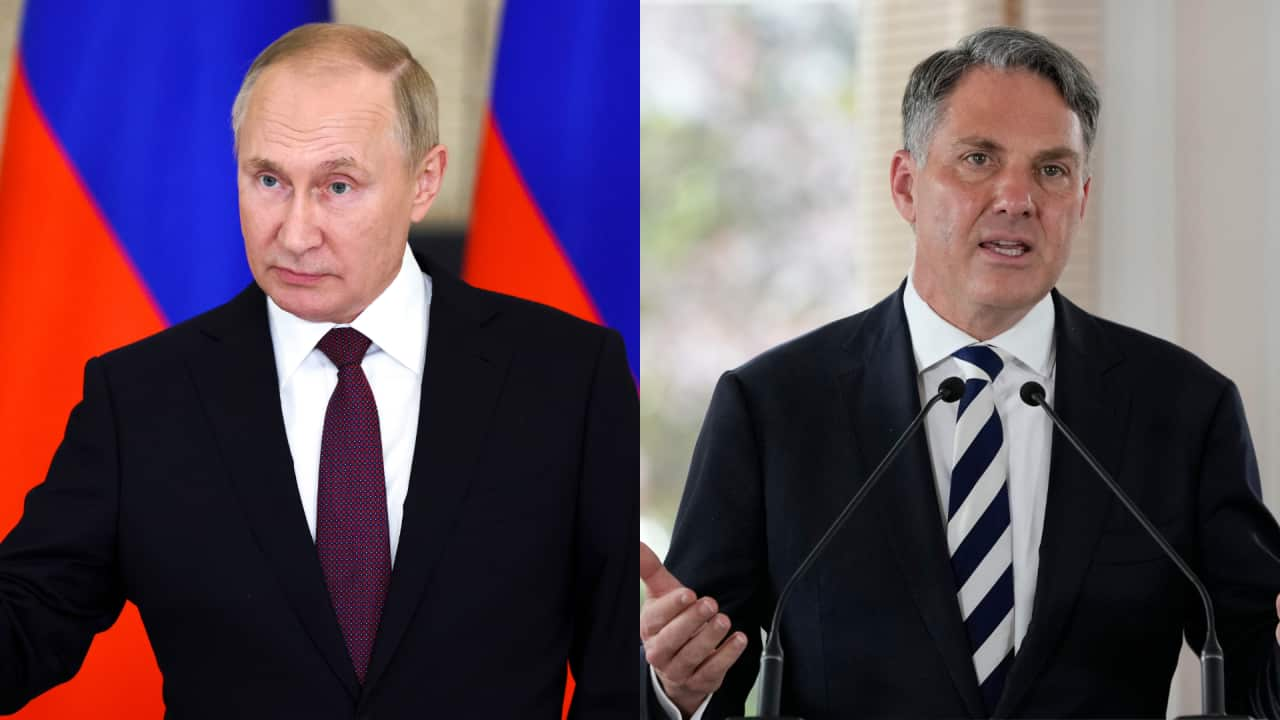Key Points
- Russia is facing accusations of forcibly taking children from occupied regions of Ukraine to be raised in Russia.
- The Commissioner for Children’s Rights in Russia has been sanctioned by western countries, including Australia.
Russia is facing accusations of forcibly taking children from occupied regions of Ukraine to be raised in Russia, prompting concerns of cultural erasure.
According to a recent Associated Press (AP) investigation, Russia’s "open effort" to adopt Ukrainian children is well underway.
Thousands of children have been found in basements of war-torn cities such as Mariupol and at orphanages in the Russian-backed territories of Donbas.
Russia says that these children don't have parents or guardians to look after them, or that they can't be reached. But according to the AP, officials have deported children to Russia or Russian-held territories without their consent, have lied to them about their parents and given them Russian families and citizenship.
Yaroslava, 11, had been evacuated from an orphanage in Donetsk, and was waiting to be sent to a foster family in Moscow with her two sisters. She said she will miss the sea and Donetsk, but she has already met her new family and likes them.
"I liked the mum from the very beginning. She introduced me to the three children," she said. "They told us that they're waiting for us," she said.
Russian law prohibits the adoption of foreign children.
But in May, President Vladimir Putin signed a decree making it easier for Russia to give citizenship to Ukrainian children without parental care and harder for Ukraine and surviving relatives to get them back.
Russia considers its adoption of Ukrainian children as an act of generosity that gives new homes and medical resources to helpless minors.

Russian President Vladimir Putin shakes hands with Presidential Commissioner for Children's Rights Maria Lvova-Belova at the Kremlin, Russia, on Wednesday, 9 March, 2022. Source: AAP / Mikhail Klimentyev/AP
In August, the United Nations said there are “credible accusations” that Russian forces have forcibly taken Ukrainian children to Russia, as part of larger-scale forced relocations and deportations.
"There have been credible allegations of forced transfers of unaccompanied children to Russian occupied territory, or to the Russian Federation itself," Ilze Brands Kehris, then assistant UN secretary-general for human rights, told the Security Council.
"We are concerned that the Russian authorities have adopted a simplified procedure to grant Russian citizenship to children without parental care, and that these children would be eligible for adoption by Russian families," she said.
Moscow was also accused of forcing large numbers of Ukrainian non-combatants into detention camps and even prisons via a Kremlin-directed "filtration" program.
Some Ukrainians judged as close to the Ukraine government or military have been tortured and forcibly removed and sent to Russian penal colonies and other detention centres, she said.
Russian UN Ambassador Vasily Nebenzya called the allegations unfounded and said what was labelled "filtration" was simply registering Ukrainians willingly fleeing the war to Russia.

Children from an orphanage in the Donetsk region eat a meal at a camp in Zolotaya Kosa, the settlement on the Sea of Azov, Rostov region, southwestern Russia, on 8 July. Source: AAP / AP Photo
In a June statement, the UN agency said that it was aware of reports that Russia “may be modifying existing legislation to facilitate the fast-tracking of adoption” of orphans from the Donbas.
“UNICEF is of the view that adoption should never occur during or immediately after emergencies. Children separated from their parents during a humanitarian emergency cannot be assumed to be orphans. Every opportunity should be provided for family reunification.”
Professor Sonia Mycak, from Australia National University’s (ANU) Centre for European Studies, also called Russia’s alleged activity deportation.
“We do know that they [Ukrainian children] are being forcibly removed. They’re being deported to often very remote regions within the Russian Federation,” she told SBS News.
How many children have been moved to Russia?
Professor Mycak said the policy has occurred throughout the existence of the Soviet Union - and since Russia’s annexation of Crimea eight years ago.
“It’s not a new policy, but it’s one the Putin regime has revived as part of its imperialist agenda,” she said.
Since Russia’s full-scale invasion, she said the number of children who have been moved has only grown. “The figures are startling,” she said.
It is difficult to ascertain the total number of Ukrainian children who are known to have been moved, and estimates vary dramatically.
According to a platform called ‘Children of War’, created on behalf of the Office of the President of Ukraine, about 8,100 children have been deported at the time of publication. But some reports suggest the number could be in the tens or hundred thousands.
Different figures have reportedly been provided by both Ukrainian and Russian sources since the invasion.
In March, Maria Lvova-Belova - Russia's Commissioner for Children's Rights, who is reported to be ultimately responsible for the operation - said that 1,500 children from Ukraine were in Russia.
Professor Mycak referred to comments from Ukrainian ombudsman Lyudmila Denisova in April when she reportedly said that 700,000 people had been deported from occupied territories, including 130,000 children.
By May, Professor Mycak said that number had grown to 223,000 children, according to a Ukrainian media outlet.
In July, Russian state media showed foster families in the Moscow region hugging and kissing Ukrainian children and local officials handing them Russian passports. The country also hosted summer camps for Ukrainian orphans.
Over the summer, Ms Belova-Lvova said 120 Russian families had applied for guardianship, and more than 130 Ukrainian children had received Russian citizenship.
By September, Professor Mycak referred to a Euromaiden Press report which claims: “According to data from open sources announced by the Russian Federation, 628,000 children have been forcibly removed to the Russian Federation and the Republic of Belarus since February 24, 2022.”
These reports could not be verified.
Russia’s children’s rights commissioner faces sanctions
"It is very important that the children feel like full-fledged members of the Russian Federation on the territory of Russia as citizens of the Russian Federation,” Ms Lvova-Belova said, as a group of children lined up to board a bus and leave Donetsk in July.
"But at the same time, of course, the Donetsk People's Republic remains their native and beloved (land).
“And we are not talking about adoption, we are talking about guardianship, which will allow us to preserve the blood kinship of these children with their relatives who remained in the territory, and (preserve) their affection for their native land."
Ms Lvova-Belova has been sanctioned by several western countries, including Australia, the United States, Europe, the United Kingdom and Canada.
US officials at the time said Ms Lvova-Belova has led Russia’s efforts to deport thousands of Ukrainian children to Russia, with her efforts specifically including the “forced adoption of Ukrainian children into Russian families, the so-called “patriotic education” of Ukrainian children, legislative changes to expedite the provision of Russian Federation citizenship to Ukrainian children, and the deliberate removal of Ukrainian children by Russia’s forces”.
Ms Lvova-Belova has said these children need Russia's help to overcome trauma the that has left them sleeping badly, crying at night and drawing basements and bomb shelters. She herself has adopted one, a teenager.
Her office referred the AP to her reply in a state-owned news agency that Russia was "helping children to preserve their right to live under a peaceful sky and be happy."
In August, a post from a senior official at the Moscow Department of Labour and Social Protection thanking the Russian families declared: "Our Children ... Now they are ours."
Concerns of ‘cultural erasure’
Professor Mycak said the policy shows signs of cultural erasure, which involves the removal of tradition and customs from society.
“The whole point of removing these children is to remove any sign of their Ukrainian identity - their linguistic, cultural or national identity,” she said.
Particularly when speaking about children, they are then subject to the use of Russian language, their Ukrainian documentation and passports are removed … they’re given, as it were, a new Russian identity and are forced to live as Russians.
She said this is part of a policy of 'Russification’, which extends to language - for example the compulsory use of Russian language in schools and civil institutions - and an “anti-Ukrainian ideology”.
“Children are taught that the Ukrainian state is a fiction, that it never really existed, that Ukrainian cultural forms are inferior to that of Russia,” she said.
According to local reports, an advisor to the mayor of the port city Mariupol said in August that parents were being forced to send their children to schools headed by the occupying administration.
“If parents refuse, the occupiers are threatening to deprive them of their parental rights and take away their children,” he was reported to have said.
Forcible transfer of children ‘can be an act of genocide’
In June this year, Ukraine’s top prosecutor told Reuters prosecutors investigating war crimes cases were examining child deportation allegations as they sought to build a genocide indictment.
At the time, then Prosecutor General Iryna Venediktova said "we have more than 20 cases about the forcible transfer of people" to Russia from various regions across the eastern European country since the invasion began.
A Kremlin spokesman did not respond to a request for comment on Ms Venediktova’s remarks.
Nikki Marczak is a genocide scholar and survivor advocate from the University of Queensland.
She said the forcible transfer of children of the targeted group to another may constitute an act of genocide under the 1948 Convention if it is committed with the intent to destroy a community based on its national, ethnic, racial or religious identity.
“In many cases of genocide … children who are forcibly transferred are converted and assimilated, forced to forget their own culture and background, and ‘become’ part of the perpetrator group,” she told SBS News.
She said the “intent to destroy” is important.
“In some cases transfer of children may be an atrocity crime but not necessarily genocidal; it can be, for example, part of a policy of ethnic cleansing and the manipulation of populations and demographics in order to gain or claim land.”
With additional reporting by AFP, Reuters












